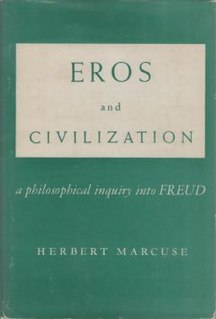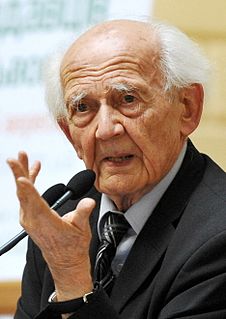Modernity, a topic in the humanities and social sciences, is both a historical period, as well as the ensemble of particular socio-cultural norms, attitudes and practices that arose in the wake of the Renaissance—in the "Age of Reason" of 17th-century thought and the 18th-century "Enlightenment". Some commentators consider the era of modernity to have ended by 1930, with World War II in 1945, or the 1980s or 1990s; the following era is called postmodernity. The term "contemporary history" is also used to refer to the post-1945 timeframe, without assigning it to either the modern or postmodern era.
Postmodernity is the economic or cultural state or condition of society which is said to exist after modernity. Some schools of thought hold that modernity ended in the late 20th century – in the 1980s or early 1990s – and that it was replaced by postmodernity, while others would extend modernity to cover the developments denoted by postmodernity, while some believe that modernity ended after World War II. The idea of the post-modern condition is sometimes characterised as a culture stripped of its capacity to function in any linear or autonomous state like regressive isolationism, as opposed to the progressive mindstate of modernism.

Sid Meier's Civilization II is a turn-based strategy video game in the Civilization series, developed and published by MicroProse. It was released in 1996 for the PC and later ported to the PlayStation by Activision.

Civilization and Its Discontents is a book by Sigmund Freud, the founder of psychoanalysis. It was written in 1929 and first published in German in 1930 as Das Unbehagen in der Kultur. Exploring what Freud sees as the important clash between the desire for individuality and the expectations of society, the book is considered one of Freud's most important and widely read works, and one of the most influential and studied books in the field of modern psychology.
In sociology, rationalization is the replacement of traditions, values, and emotions as motivators for behavior in society with concepts based on rationality and reason. For example, the implementation of bureaucracies in government is a kind of rationalization, as is the construction of high-efficiency living spaces in architecture and urban planning. A potential reason as to why rationalization of a culture may take place in the modern era is the process of globalization. Countries are becoming increasingly interlinked, and with the rise of technology, it is easier for countries to influence each other through social networking, the media and politics. An example of rationalization in place would be the case of witch doctors in certain parts of Africa. Whilst many locals view them as an important part of their culture and traditions, development initiatives and aid workers have tried to rationalize the practice in order to educate the local people in modern medicine and practice.
In Freudian psychoanalysis, the pleasure principle is the instinctive seeking of pleasure and avoiding of pain to satisfy biological and psychological needs. Specifically, the pleasure principle is the driving force guiding the id.

In classical Freudian psychoanalytic theory, the death drive is the drive toward death and self-destruction. It was originally proposed by Sabina Spielrein in her paper "Destruction as the Cause of Coming Into Being" in 1912, which was then taken up by Sigmund Freud in 1920 in Beyond the Pleasure Principle. This concept has been translated as "opposition between the ego or death instincts and the sexual or life instincts". In Pleasure Principle, Freud used the plural "death drives" (Todestriebe) much more frequently than in the singular.

Eros and Civilization: A Philosophical Inquiry into Freud is a book by the German philosopher and social critic Herbert Marcuse, in which the author proposes a non-repressive society, attempts a synthesis of the theories of Karl Marx and Sigmund Freud, and explores the potential of collective memory to be a source of disobedience and revolt and point the way to an alternative future. Its title alludes to Freud's Civilization and Its Discontents (1930). The 1966 edition has an added "political preface".
Late modernity is the characterization of today's highly developed global societies as the continuation of modernity rather than as an element of the succeeding era known as postmodernity, or the postmodern.

The narcissism of small differences is the thesis that communities with adjoining territories and close relationships are especially likely to engage in feuds and mutual ridicule because of hypersensitivity to details of differentiation. The term was coined by Sigmund Freud in 1917, based on the earlier work of British anthropologist Ernest Crawley. In language differing only slightly from current psychoanalytic terminology, Crawley declared that each individual is separated from others by a taboo of personal isolation, a narcissism of minor differences.
Peter Beilharz is an Australian sociologist. He is currently Professor of Culture and Society at Curtin University, Perth, Western Australia. Previously he was Professor of Sociology at La Trobe University, Melbourne. Beilharz is also a co-founder and editor of the international journal of social theory Thesis Eleven published by Sage.

David Lyon directs the Surveillance Studies Centre, is a Professor of Sociology, holds a Queen’s Research Chair and is cross-appointed as a Professor in the Faculty of Law at Queen's University in Kingston, Ontario.
Sigmund Freud's views on religion are described in several of his books and essays. Freud regarded God as an illusion, based on the infantile need for a powerful father figure; religion, necessary to help us restrain violent impulses earlier in the development of civilization, can now be set aside in favor of reason and science.

Thoughts for the Time of War and Death is a set of twin essays written by Sigmund Freud in 1915, six months after the outbreak of World War I. The essays express discontent and disillusionment with human nature and human society in the aftermath of the hostilities; and generated much interest among lay readers of Freud.
Allosemitism is a neologism used to encompass both philo-Semitic and anti-Semitic attitudes towards Jews as other.
Psychical inertia is a term introduced by Carl Jung to describe the psyche's resistance to development and change. He considered it one of the main reason for the neurotic opposing, or shrinking from, his/her age-appropriate tasks in life.
Michael Hviid Jacobsen is a Danish professor of sociology. Since 1997 he has been employed at Aalborg University, acting from 2009 as a professor at the Department of Sociology and Social Work. He is a frequent lecturer and often appears in the media as an expert within a wide range of topics, particularly in relation to our changing culture of death and criminal issues.

Irena Bauman is an architect and co-founder and director of Bauman Lyons Architects. She co-founded this firm with Maurice Lyons in 1992. Bauman is a Professor of Sustainable Urbanism at Sheffield University School of Architecture and is also an external examiner at the Welsh School of Architecture and Manchester School of Architecture. Bauman holds several positions such as Chair of Chair of the Regional Design Review Panel, Chair of Yorkshire Design Review, Patron of Urban Design Group, and she is a Fellow of Royal Society of Arts. She was also the Commissioner for Commission for Architecture and the Built Environment for the UK from 2002 to 2009.









